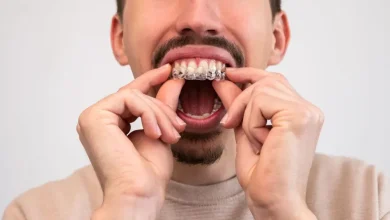Baby Teeth and Their Role in Long-Term Oral Health

Baby teeth may be temporary, but they play an important role in your child’s overall oral health. A trusted san ramon dentist can help ensure these primary teeth stay healthy and properly cared for. These primary teeth help shape a healthy, well-aligned smile and guide the development of permanent teeth. Taking care of baby teeth properly can make a big difference in your child’s long-term dental health.
Why Baby Teeth Matter
Baby teeth, also called primary teeth, do more than just fill space. They are important for:
- Chewing and Eating: Strong, healthy teeth help children chew food properly, supporting good nutrition and growth.
- Speech Development: Teeth help children form words and sounds clearly.
- Jaw and Facial Growth: Baby teeth guide the development of the jaw and facial muscles, helping teeth grow in alignment.
- Maintaining Room for Permanent Teeth: Baby teeth hold space for adult teeth to grow in properly. Losing them too early can cause nearby teeth to shift, leading to crowding or misalignment.
Keeping baby teeth healthy is essential for oral development and overall well-being.
How Baby Teeth Affect Future Oral Health
The condition of baby teeth can influence permanent teeth and long-term oral health. Problems with primary teeth can lead to:
- Misaligned Teeth: Early loss from decay or injury can cause other teeth to move, leading to crooked adult teeth.
- Cavities: Untreated cavities in baby teeth can spread to nearby teeth and affect developing permanent teeth.
- Gum Problems: Poor oral hygiene can harm gums and increase the risk of periodontal issues later.
- Speech and Eating Issues: Dental problems may affect chewing and speaking, which can impact nutrition and confidence.
Caring for baby teeth prevents these issues and helps children develop a healthy smile.
Tips to Keep Baby Teeth Healthy
- Start Dental Visits Early: Schedule the first dental visit by the first birthday or within six months of the first tooth. Early visits help establish habits and detect problems early.
- Brush and Floss Properly: Brush twice a day with fluoride toothpaste. Use a smear-sized amount for children under three and a pea-sized amount for ages three to six. Begin flossing once teeth touch.
- Encourage a Healthy Diet: Limit sugary foods and drinks. Offer fruits, vegetables, dairy, and whole grains to support strong teeth and gums.
- Prevent Injuries: Use mouthguards for sports and encourage safe play to protect teeth.
- Regular Check-ups: Routine dental visits allow for monitoring, preventive treatments, and early intervention when needed.
Supporting Lifelong Oral Health
Early dental care lays the foundation for healthy teeth and gums. Preventive treatments like fluoride, sealants, and professional cleanings help protect against decay. Parents who are guided on proper hygiene and nutrition can reinforce healthy habits at home. Creating a positive and comfortable dental experience ensures children develop lifelong oral care practices.
Caring for baby teeth today supports strong, healthy permanent teeth tomorrow, giving children the confidence and foundation for a bright smile throughout their life.




